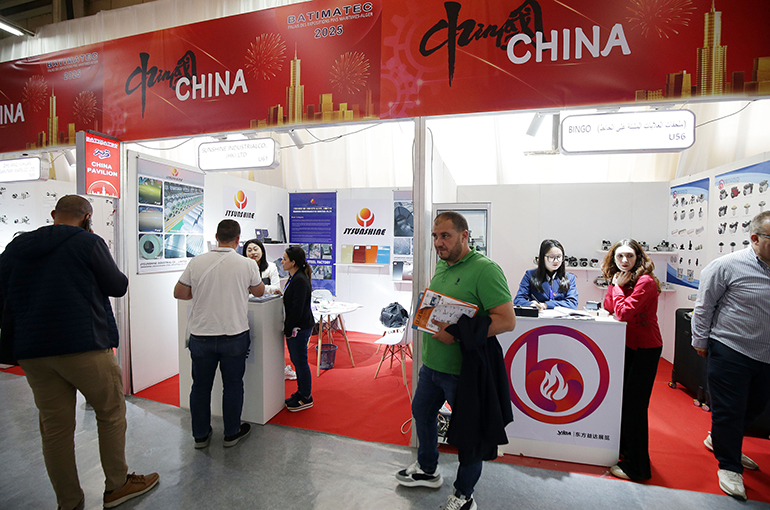 Branding, Talent Are Key Issues as More Chinese Firms Seek Growth Abroad, Experts Say
Branding, Talent Are Key Issues as More Chinese Firms Seek Growth Abroad, Experts Say(Yicai) May 8 -- The success of Chinese firms abroad increasingly depends on well-crafted strategies for expanding sales networks, acquiring talent, and building brand awareness, according to industry experts.
As domestic competition intensifies and global supply chains undergo restructuring, more Chinese manufacturers are turning to overseas markets for growth but challenges remain in hiring and branding, Yicai learned.
Chinese companies venturing abroad are no longer limited to internet sectors like decades ago. They now span industries such as new energy, pharmaceuticals, beverages, and automotive manufacturing, with smart manufacturing emerging as a key focus, according to data from LinkedIn China.
Broadening Reach
The tariff policies implemented during the Donald Trump administration have directly impacted China’s electronics, auto parts, and consumer goods sectors, making it critical for Chinese firms to seek opportunities in alternative markets.
Nevertheless, many manufacturers remain hesitant to completely exit the North American market, despite the rising tariffs that increase business costs and reduce revenues.
“We won’t put all our eggs in one basket,” said the head of overseas sales and marketing at Horion Intelligent Technology, a display solution provider. This year, Horion is focusing on growth markets in Latin America and North America, actively recruiting channel partners and expanding operations in Argentina, Chile, and Brazil, the executive told Yicai.
“We’re also eyeing India, and plan to expand into Middle Eastern, African, and Central European countries -- regions with strong investments in education,” he added.
Regarding North America, the Horion executive emphasized a cautious strategy: maintaining brand visibility but without heavy investment, applying a relatively capital-light approach.
Horion established a factory in Mexico several years ago and began selling products through Amazon’s e-commerce platform late last year. Current inventory in Amazon warehouses is sufficient to sustain near-term sales.
Beyond tariffs, rising labor costs are also prompting diversification. “Labor expenses in Mexico rise every year,” noted a manager at a Mexican factory of a leading Chinese television manufacturer, highlighting the challenge of maintaining profitability amid escalating costs.
Attracting Local Talent
Expansion demands upgrades in both talent and technology.
As overseas operations grow, companies must strengthen sales networks and technical services, which in turn requires significant research and development as well as engineering expertise, said Lin Guangqiu, senior vice president of Desay SV Automotive, a provider of smart cabin solutions. “This makes recruiting local professionals an urgent priority.”
Lin explained that Desay locates offices close to talent hubs and partners with international recruitment platforms and service providers such as LinkedIn.
Understanding and respecting local cultures is essential in hiring, Lin emphasized. For example, in Western markets, work-life balance often ranks above salary in importance.
“To retain talent, we cannot universally apply Chinese management practices,” the SVP said. Instead, companies must design management frameworks and collaboration models that reflect local cultural norms.
Brand Narratives
Technology alone is not enough—consumers also seek reliable, compelling brand stories.
“In the digital era, Chinese manufacturers must combine technological innovation with globally recognized brand identities,” said Xue Yuanpeng, deputy director of the Trade and Investment Department at the China Council for the Promotion of International Trade Shenzhen Municipal Committee.
The above-mentioned Horion executive echoed that view. In the past, overseas strategies prioritized manufacturing over marketing. But today’s global markets value brand storytelling and positioning, the sales chief said.
Horion should position itself as an innovation-driven company, targeting customers with differentiated strategies, the insider added.
Wang Qian, general manager of LinkedIn China, stressed the need for “localized understanding of politics, business practices, and cultural nuances” to create effective region-specific brand identities. LinkedIn China advises Horion on branding.
Editor: Emmi Laine